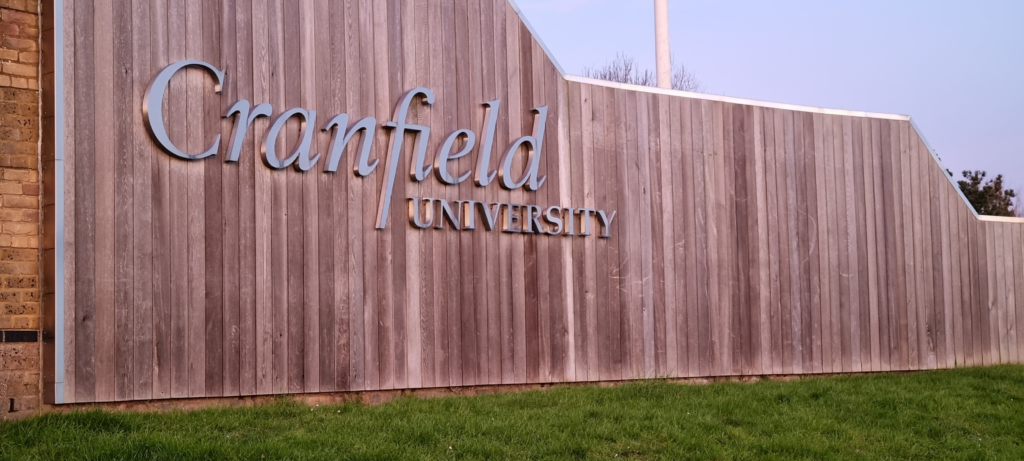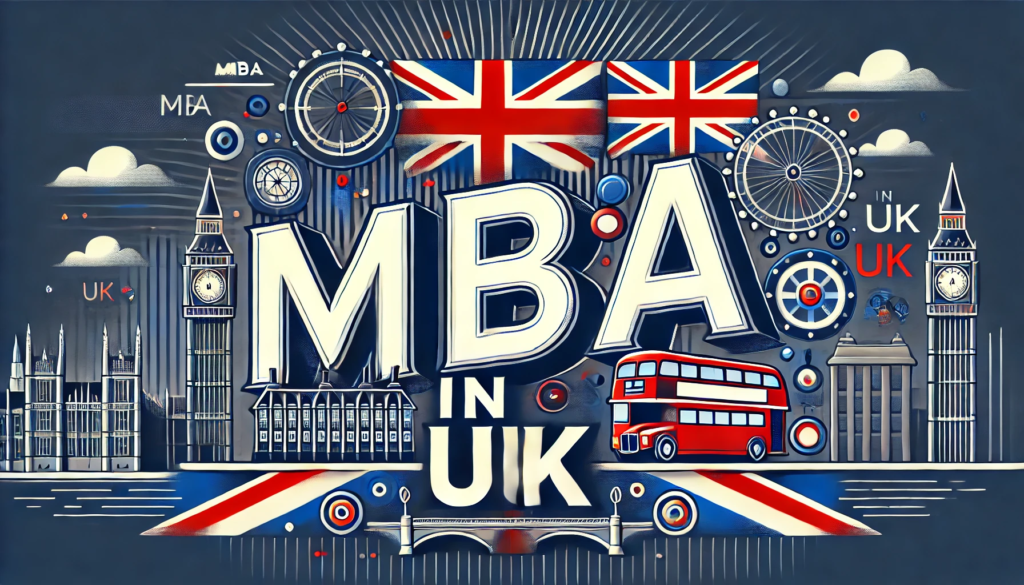Are you dreaming of an MBA that combines world-class education with a shorter duration and global recognition? The UK could be your ideal destination! Pursuing an MBA in UK has become increasingly popular among Indian students—and for good reason.
First, let’s talk about the standout features of MBA in UK. MBA in UK are typically one year long, offering a faster ROI compared to the two-year programs in the US. This shorter duration of MBA in UK also translates to reduced living costs, making it a financially savvy option. But that’s not all—UK universities boast globally renowned business schools, diverse student cohorts, and access to robust alumni networks.
Key Benefits at a Glance
- Global Exposure: Join students from around the world, enriching your learning through diverse perspectives.
- Prestige and Rankings: Many MBA in UK programs rank among the top 100 globally.
- Strong Job Prospects: Graduates secure positions in top companies, with average MBA in UK salary figures reaching impressive levels.
What It Takes: MBA in UK Requirements
For Indian students, securing a place in a top MBA program involves meeting specific requirements:
- GMAT Scores: Most schools prefer scores of 600 and above.
- English Proficiency: IELTS or TOEFL certification.
- Academic Records: A strong undergraduate degree with transcripts.
- Work Experience: At least 2–5 years is typically required.
By the end of this blog, you’ll know about the top MBA in UK colleges, program fees, job opportunities, and salaries to help you make an informed decision.
The 8 Best MBA Colleges in the UK for Indian Students
Choosing the right college is the cornerstone of your MBA journey. Below is a detailed overview of the top 8 MBA colleges in the UK, tailored to Indian students’ needs.
London Business School (LBS)
London Business School is synonymous with excellence. Located in the heart of London, LBS offers unparalleled access to financial hubs, networking opportunities, and renowned faculty. Known for its focus on consulting and finance, LBS ranks consistently among the top MBA in UK programs globally. Its one-year program is flexible, allowing students to customize their curriculum and internships.

| Feature | Details |
|---|---|
| Acceptance Rate | ~25% |
| Global Ranking | #2 (Financial Times MBA Rankings 2023) |
| Tuition Fees | £97,500 |
| Additional Expenses | ~£30,000 (living, travel, and miscellaneous) |
| Test Scores Required | GMAT 700+ recommended, IELTS/TOEFL (English Proficiency) |
| Post-MBA Salary | ~£90,000 – £120,000/year |
| Notable Alumni | Sundar Pichai (CEO, Google), Tony Wheeler (Founder, Lonely Planet) |
University of Oxford – Saïd Business School
Oxford Saïd combines the prestige of one of the world’s oldest universities with a forward-thinking MBA program. Known for its emphasis on social impact and leadership, Saïd fosters a global outlook. Students benefit from the vast resources of the University of Oxford, including access to industry leaders and cutting-edge research.

| Feature | Details |
|---|---|
| Acceptance Rate | ~20% |
| Global Ranking | #12 (Financial Times MBA Rankings 2023) |
| Tuition Fees | £71,440 |
| Additional Expenses | ~£25,000 (living, books, travel) |
| Test Scores Required | GMAT 690+ preferred, IELTS/TOEFL |
| Post-MBA Salary | ~£85,000 – £100,000/year |
| Notable Alumni | Lynda Gratton (Management Guru), Adair Turner (Economist) |
University of Cambridge – Judge Business School
Cambridge Judge Business School stands out for its focus on innovation, entrepreneurship, and technology. The program emphasizes hands-on learning through projects and collaborations with the Cambridge technology ecosystem. Judge’s one-year MBA in UK program attracts students with diverse backgrounds, enhancing its collaborative culture.

| Feature | Details |
|---|---|
| Acceptance Rate | ~30% |
| Global Ranking | #17 (Financial Times MBA Rankings 2023) |
| Tuition Fees | £64,000 |
| Additional Expenses | ~£23,000 (accommodation, meals, and others) |
| Test Scores Required | GMAT 680+ preferred, IELTS/TOEFL |
| Post-MBA Salary | ~£85,000 – £95,000/year |
| Notable Alumni | Stefan Klestil (Investor), Anshu Jain (Former CEO, Deutsche Bank) |
Imperial College Business School
Imperial College’s MBA program integrates technology, data, and leadership. Known for its focus on STEM and innovation, Imperial equips students with the skills to navigate industries like healthcare, fintech, and analytics. With a prime location in London, students gain exposure to leading companies and networking events.

| Feature | Details |
|---|---|
| Acceptance Rate | ~29% |
| Global Ranking | #19 (Financial Times MBA Rankings 2023) |
| Tuition Fees | £61,500 |
| Additional Expenses | ~£28,000 |
| Test Scores Required | GMAT 650+, IELTS/TOEFL |
| Post-MBA Salary | ~£75,000 – £85,000/year |
| Notable Alumni | Sarah Wilkinson (CEO, NHS Digital), Alice Gast (President, Lehigh University) |
Warwick Business School
Warwick Business School has a reputation for academic rigor and practical learning. Its MBA program is designed to develop strategic leaders and provides strong career support for graduates. Warwick’s location, near major business centers, ensures a steady influx of industry recruiters and opportunities.

| Feature | Details |
|---|---|
| Acceptance Rate | ~30% |
| Global Ranking | #32 (Financial Times MBA Rankings 2023) |
| Tuition Fees | £47,000 |
| Additional Expenses | ~£20,000 (living, food, travel) |
| Test Scores Required | GMAT 650+, IELTS/TOEFL |
| Post-MBA Salary | ~£70,000 – £80,000/year |
| Notable Alumni | Andy Haldane (Chief Economist, Bank of England), Nigel Wilson (CEO, Legal & General) |
Alliance Manchester Business School
Alliance Manchester Business School is renowned for its emphasis on experiential learning. The MBA program incorporates live client projects, providing students with real-world insights and hands-on experience. With a focus on consulting, finance, and operations, Alliance Manchester prepares graduates for leadership roles in a global context.

| Feature | Details |
|---|---|
| Acceptance Rate | ~35% |
| Global Ranking | #50 (Financial Times MBA Rankings 2023) |
| Tuition Fees | £45,000 |
| Additional Expenses | ~£20,000 (housing, living, and travel) |
| Test Scores Required | GMAT 600+, IELTS/TOEFL |
| Post-MBA Salary | ~£65,000 – £75,000/year |
| Notable Alumni | Christopher Rodrigues (Former CEO, Visa International), Frances O’Grady (General Secretary, TUC) |
University of Edinburgh Business School
The University of Edinburgh Business School is a leader in promoting sustainability and responsible leadership. Its MBA program blends traditional business education with a strong focus on innovation and ethics. Located in Scotland’s capital, the school provides access to diverse industries, from financial services to renewable energy.

| Feature | Details |
|---|---|
| Acceptance Rate | ~40% |
| Global Ranking | #63 (Financial Times MBA Rankings 2023) |
| Tuition Fees | £35,900 |
| Additional Expenses | ~£15,000 (living, books, personal expenses) |
| Test Scores Required | GMAT 600+, IELTS/TOEFL |
| Post-MBA Salary | ~£60,000 – £70,000/year |
| Notable Alumni | Lisa Harman (VP, Cisco), Kevin Wang (Director, Tencent) |
Cranfield School of Management
Cranfield School of Management specializes in providing industry-focused MBAs, with a strong emphasis on practical applications. Renowned for its expertise in supply chain and logistics, Cranfield is a go-to destination for professionals aiming for senior operational roles.

| Feature | Details |
|---|---|
| Acceptance Rate | ~30% |
| Global Ranking | #56 (Financial Times MBA Rankings 2023) |
| Tuition Fees | £40,175 |
| Additional Expenses | ~£17,000 |
| Test Scores Required | GMAT 600+, IELTS/TOEFL |
| Post-MBA Salary | ~£65,000 – £80,000/year |
| Notable Alumni | Warren East (CEO, Rolls-Royce), Andy Palmer (Former CEO, Aston Martin) |
Which Is the “Best” MBA College Among the Top 8?
When it comes to selecting the “best” MBA college, the answer often depends on your career goals, financial resources, and personal preferences. The MBA in UK offers several exceptional options, but let’s break this down to help you decide.
London Business School: A Hub for Consulting and Finance
If your goal is to work in consulting or finance, London Business School (LBS) is the clear leader. With its prime location in the financial capital of Europe, strong alumni network, and top-tier placements, LBS consistently delivers stellar outcomes. Graduates report starting salaries upwards of £90,000 per year, often joining firms like McKinsey, Bain, or Goldman Sachs.
Oxford and Cambridge: Prestige and Leadership Opportunities
For those seeking brand prestige and leadership roles, Oxford Saïd and Cambridge Judge are standout choices. Both offer access to their university’s extensive networks, enabling unparalleled opportunities in academia, business, and beyond. Notable alumni from Oxford and Cambridge have gone on to become CEOs, founders, and global leaders. Salaries for graduates hover around £85,000 – £100,000 annually, with a strong focus on strategy and innovation.
Cranfield and Imperial: Sector-Specific Strengths
If you aim to specialize in logistics or supply chain management, Cranfield School of Management should be your go-to. Meanwhile, Imperial College excels in tech-oriented industries, offering specializations in data analytics and healthcare management—sectors with growing demand worldwide.
Warwick and Alliance Manchester: Balanced ROI
For students balancing ROI with access to high-quality education, Warwick and Alliance Manchester are ideal. Their relatively lower tuition fees (around £45,000) combined with strong industry connections make them excellent choices for finance and consulting aspirants.
Ultimately, the best college depends on your career goals. While rankings and salaries provide benchmarks, your personal fit with a program’s structure and culture is equally important.
Frustrated with Generic College Lists from AI Tools?
Get a tailored college shortlist crafted by study abroad experts who understand YOUR goals, profile, and aspirations.

Salary After Doing an MBA in UK
Average Salaries and Sector Insights
Completing an MBA in UK can significantly boost earning potential. On average, graduates from top-tier schools secure starting salaries of £70,000 – £100,000 annually. Those entering high-demand industries like consulting or finance can expect to earn on the higher end of this spectrum, with salaries ranging from £90,000 – £120,000 per year.
Here’s a breakdown by sector:
- Consulting: The highest-paying sector for MBA in UK graduates, offering salaries between £85,000 – £120,000.
- Finance: Salaries typically range from £80,000 – £110,000, especially in roles like investment banking and private equity.
- Technology: Growing in popularity, with packages of £70,000 – £95,000 for roles in product management and data analytics.
- Healthcare and Sustainability: Salaries start at around £65,000 – £80,000, reflecting growing interest in these fields.
Salary Growth Over Time
MBA in UK graduates see rapid salary growth within five years. Alumni from LBS or Oxford Saïd report mid-career earnings of over £150,000, especially in leadership roles. This accelerated growth highlights the strong ROI offered by UK programs.
Regional Salary Variations
While salaries in London are the highest due to its financial prominence, cities like Manchester and Edinburgh offer competitive packages with lower living costs.
Tips to Maximize Your Salary Potential
- Networking: Start building connections early through alumni and career services.
- Internships: Secure internships in high-paying sectors like consulting or tech.
- Certifications: Complement your MBA with certifications in relevant fields like data analytics or CFA.
By strategically navigating your MBA journey, you can unlock top-tier salaries and fast-track your career growth. Let me know if you’d like further insights!
Why Does Everyone Say Getting a Job in the UK Is Tough?
Understanding the Challenges
Getting a job in the UK after an MBA can be challenging, but it’s not impossible—especially for graduates of top-tier colleges. The primary reasons for this perception include:

- Visa Restrictions: Non-EU students require sponsorship, which limits the number of employers willing to hire.
- Competition: The UK job market is highly competitive, with graduates from Europe, Asia, and beyond vying for the same roles.
- Lack of On-Campus Placements: Unlike India, UK schools don’t offer structured placement drives, so students must proactively network and apply for jobs.
Why Top-Tier Colleges Make a Difference
Graduating from schools like LBS, Oxford, or Cambridge significantly improves job prospects. These institutions have strong ties with top recruiters and provide excellent career services to help students navigate the market.
Industries with High Demand
- Consulting: Firms like McKinsey, Bain, and BCG actively recruit from MBA in UK programs.
- Technology: Companies like Amazon, Google, and Microsoft are prominent employers.
- Finance: Investment banks, private equity firms, and hedge funds in London hire aggressively from top UK MBA schools.
Strategies to Succeed
- Start Early: Begin applying for internships and roles as soon as your program starts.
- Leverage Career Services: Attend workshops, mock interviews, and networking events organized by your school.
- Build Your Network: Connect with alumni and attend industry events to expand your professional circle.
While securing a job in the UK requires effort, students from the best universities with a well-executed plan often achieve their goals. Let me know if you’d like insights on navigating the Graduate Route Visa or industry-specific strategies!
FAQs on MBA in UK
What Are the General MBA in UK Requirements?
Admission requirements for an MBA in UK typically include a GMAT score of 600 or higher, with top programs like London Business School often preferring scores above 700. Applicants must also have a strong academic background, usually evidenced by a first-class or upper second-class undergraduate degree. Proficiency in English is mandatory, demonstrated through standardized tests like IELTS (with a minimum overall band of 6.5–7) or TOEFL (with scores ranging from 88–100). Most programs also require at least 2–5 years of work experience, along with well-crafted essays, recommendations, and an updated resume that highlights leadership potential.
How Long Is the MBA Duration in UK Generally?
Most MBA in UK are designed to be completed in one year, offering a condensed and intensive curriculum that balances classroom learning with practical projects. This shorter duration, compared to the two-year MBA programs in the US, provides students with a faster return on investment by reducing both tuition fees and opportunity costs. A few executive MBA in UK options or part-time programs may extend up to 18–24 months, catering to working professionals.
What Is the MBA in UK Eligibility for Indian Students?
Indian students need to fulfill specific eligibility criteria to apply for an MBA in UK. This includes holding an undergraduate degree (preferably with a GPA of 7.0 or above), submitting GMAT or GRE scores, and meeting English proficiency standards through IELTS or TOEFL. Additionally, applicants must showcase at least 2–3 years of work experience in a relevant field and provide strong letters of recommendation, a compelling statement of purpose (SOP), and a detailed resume highlighting professional achievements and career goals.
How Do I Finance My MBA in UK?
Financing an MBA in UK can be managed through a combination of personal savings, education loans, and scholarships. Many universities offer partial or merit-based scholarships specifically for international students. Government schemes like the Chevening Scholarship and Commonwealth Scholarships are excellent options for Indian applicants. Additionally, private loans from Indian banks or NBFCs often cover tuition fees and living expenses, with interest rates ranging between 9–12%. Students should also explore university bursaries and work opportunities during their studies to offset costs.
Are There Good MBA Courses in UK Beyond the Top 8?
While the top-tier schools like LBS, Oxford, and Cambridge dominate rankings, several other MBA in UK provide excellent education and career outcomes. Schools like Durham University Business School, Lancaster University, and City University (Cass Business School) are known for their specialized programs and affordable tuition fees, making them ideal for students looking for niche expertise or better ROI. These programs often cater to specific industries like healthcare, supply chain, or marketing.
Conclusion & Key Takeaways
Why an MBA in UK Could Be Your Best Decision
Pursuing an MBA in UK offers a unique blend of academic excellence, global exposure, and a shorter program duration, making it an attractive choice for Indian students. The one-year structure minimizes opportunity costs, while world-class institutions like London Business School, Oxford Saïd, and Cambridge Judge provide access to robust alumni networks and exceptional career services.
Summarizing the Key Points
- The top MBA colleges in the UK deliver high-quality education with specialization in fields like finance, consulting, entrepreneurship, and technology.
- Graduates secure starting salaries of £70,000–£100,000 in the UK and ₹30–70 lakhs in India, depending on their field and experience.
- Scholarships and funding options, along with shorter program durations, make the UK a financially viable choice for many Indian students.
- Challenges like visa requirements and the absence of campus placements can be mitigated by proactive networking and strategic planning.




